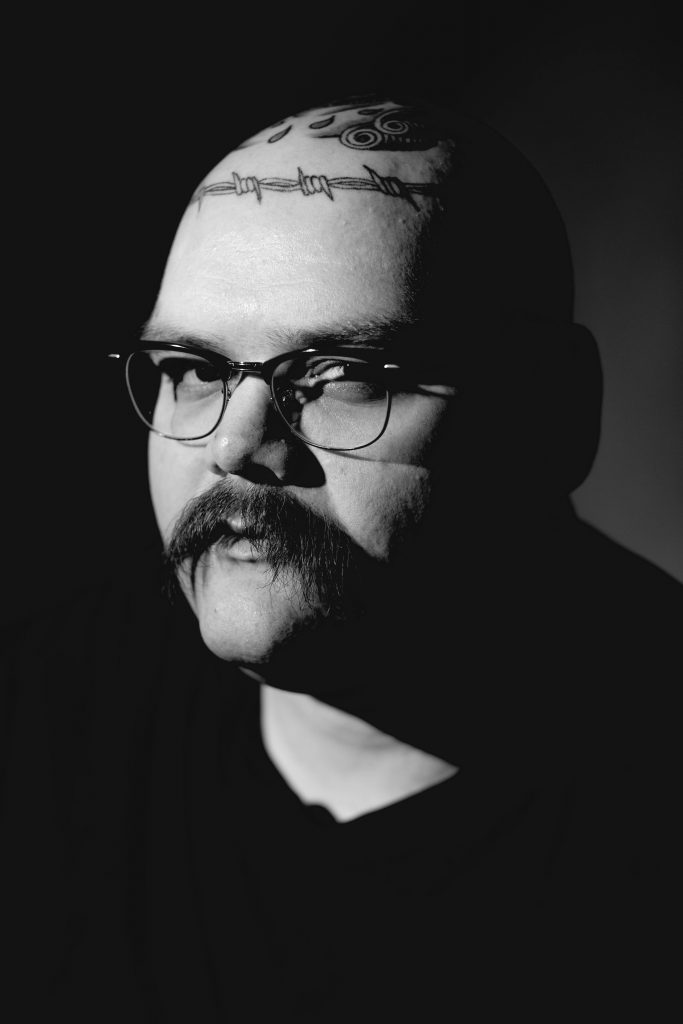John Moreland Doesn’t Know Where He Fits — and That’s the Point

John Moreland doesn’t chase validation. He just writes songs — slowly, deliberately, and only when the words demand to be written. “I just do my thing,” he said, his voice unhurried. “And hope for the best, honestly.”
For Moreland, the act of making music has never been about fitting in. “I don’t really know how to get or hold people’s attention,” he admitted. “It feels increasingly less clear where I fit into things.” Yet, there’s no bitterness in his tone — only a quiet acceptance, a shrug toward the mystery of it all. “I just feel lucky that people care,” he said. “I try to make something real that resonates with me, and that seems to be a pretty good indicator it’ll resonate with a handful of other people. Enough to come out here and keep the wheels turning.”
That simple honesty — that lack of pretense — is what gives Moreland’s music its gravity. His songs are heavy with sincerity, yet sung in a voice that never demands attention. He talks about art as if it were survival, not strategy. “I don’t know where I fit or what I’m supposed to do really,” he said. “If it resonates for me, that’s always the guiding light. Sometimes that means I’m gonna do stuff that’s hard to understand to some people. But man, I don’t know how to be anything else, so that’s just gonna have to be okay.”
What anchors Moreland is sincerity — his one constant, his common thread. “Extreme sincerity,” he called it. “Any kind of music that I’ve dabbled in throughout my life, that’s always been there.” He laughs when he talks about trying to guess what people will like. “I’m always wrong,” he admitted. “I just don’t share the same taste as the masses. So it’s a waste of time to do anything other than please myself and hope for the best.”
That devotion to personal truth is what makes Moreland’s songs so raw and enduring. He recalled the moments that first made him want to make music — Steve Earle’s “Rich Man’s War,” Bruce Springsteen’s “Devils & Dust,” and Jason Molina’s Magnolia Electric Company. “I remember seeing those videos and just thinking, holy shit, I want to do that,” he said. “Hearing that Molina record for the first time, on a Discman in a van on tour with my hardcore band when I was eighteen — that was life-changing.”
His love for Springsteen’s lesser-known songs revealed something else: that greatness isn’t measured by fame. “If your lesser-known songs — the ones people don’t even really care about — are still that good,” he said, “then you’re pretty damn good, man.”
Moreland grew up around music, though not in a family of connoisseurs. His father played a little guitar, enough to keep one in the house — enough to spark something. “He just kind of had his favorites, the same stuff since college,” Moreland said. “But him playing a guitar and having one around is how I ended up playing.”
As an adult, he finds himself reflecting more on how childhood moments shaped him. “I keep learning how much things from my childhood have affected me,” he said. “Stuff I never thought about — like moving from Kentucky to Oklahoma when I was ten. I’m starting to realize those things were more significant in shaping me, for better or worse, than I ever knew.”
His creative process mirrors his life — rooted in instinct. “I write everything in the notes app on my phone,” he said. “If I wait fifteen seconds, it’s gone. I’ve got a big list of ideas, words, and fragments that I pull from when I sit down to write.”
Unlike many prolific songwriters, Moreland works at a deliberate pace. “I write a handful of songs a year — less than ten,” he said. “I used to write thirty or forty because I wanted to get really good at it. Then it became my job, and I just didn’t have the time. Now I go for months without writing, and then I’ll have a period where I just feel like I need to. Like my psyche’s clogged or something.”
He’s come to trust that rhythm — bursts of inspiration separated by quiet stretches of living. “I think that’s just how it goes for me,” he said. “I can write fifty songs a year if I want, but I don’t think they’d be as good as the ten I’d write if I just live normally. That pace feels right.”
For Moreland, the balance between life, work, and art is delicate but essential. “When I tried to write thirty or forty songs a year, I felt like I didn’t have anything left to say,” he said. “All my songs felt like they were about the same shit. I was rehashing things in a way that drained the well dry. Finding that balance — ten or so songs a year — feels good.”
He laughed at the idea of trying to stay original in a world where everything echoes something else. That sense of humility — of never quite belonging — defines him as much as his songs do. “I feel like two people,” he admitted. “I feel like a really normal person, and I also feel like a total alien that’s never fit anywhere. Both at the same time.”
That duality, that tension between self-doubt and quiet conviction, is what gives John Moreland’s music its raw, transformative power. He doesn’t need to fit anywhere. He doesn’t need to please everyone. His songs — slow, sincere, unpretentious — do something rarer. They stick to you.
“I think if they stick to you, that’s cool,” he said softly, almost to himself. “That’s really all I want.”